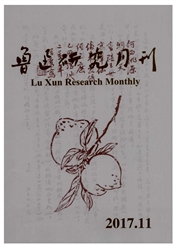

 中文摘要:
中文摘要:
鲁迅形象研究的问题,从形而上层面来看,是国民思想自由与民族精神成熟发展程度的衡量;从形而下层面看,是国民实际参与社会政治、经济、文化的具体策略。从"政治化"进入"人格化"的鲁迅,是民族信仰在社会转型阶段中的重要标志,也是社会意识形态多元格局形成的直接结果。民族共同体在戒除了狂热的领袖崇拜与脱离了肤浅的阶级政治"乌托邦"之后,必然面临的问题就是精神的何去何从。在"人"的返回之路上,鲁迅形象建构中出现的"凡人化""恶人化"与"庸人化"倾向,充分地显现国民借助鲁迅走出精神困境却又深陷于精神囹圄的矛盾。
 英文摘要:
英文摘要:
The question of the image of Lu Xun has become a measure of the freedom of national thought and the maturity of national spirit at the metaphysical level, and embodies citizens' concrete tactics in participating in the social, political, economic and cultural activities at the physical level. The image of Lu Xun, which has gone from "being politicalized" to "being personalized," is an important symbol of the national faith at the stage of the social transformation, and is also a direct result of the multivariate structure of social ideology. After abstaining from fanatical leadership worship and superficial class politics "Utopia," national community is now facing an inevitable problem: where to and from for the human spirit. Under the bannner of the returning of humanity, the tendency appearing in "mortal" "evil" and "philistine" in the construction of the image of Lu Xun fully shows the spiritual contradiction of Chinese people who wish to get rid of their spiritual void with the help of Lu Xun only to be deeply trapped in the prison-house of their spirit.
 同期刊论文项目
同期刊论文项目
 同项目期刊论文
同项目期刊论文
 期刊信息
期刊信息
